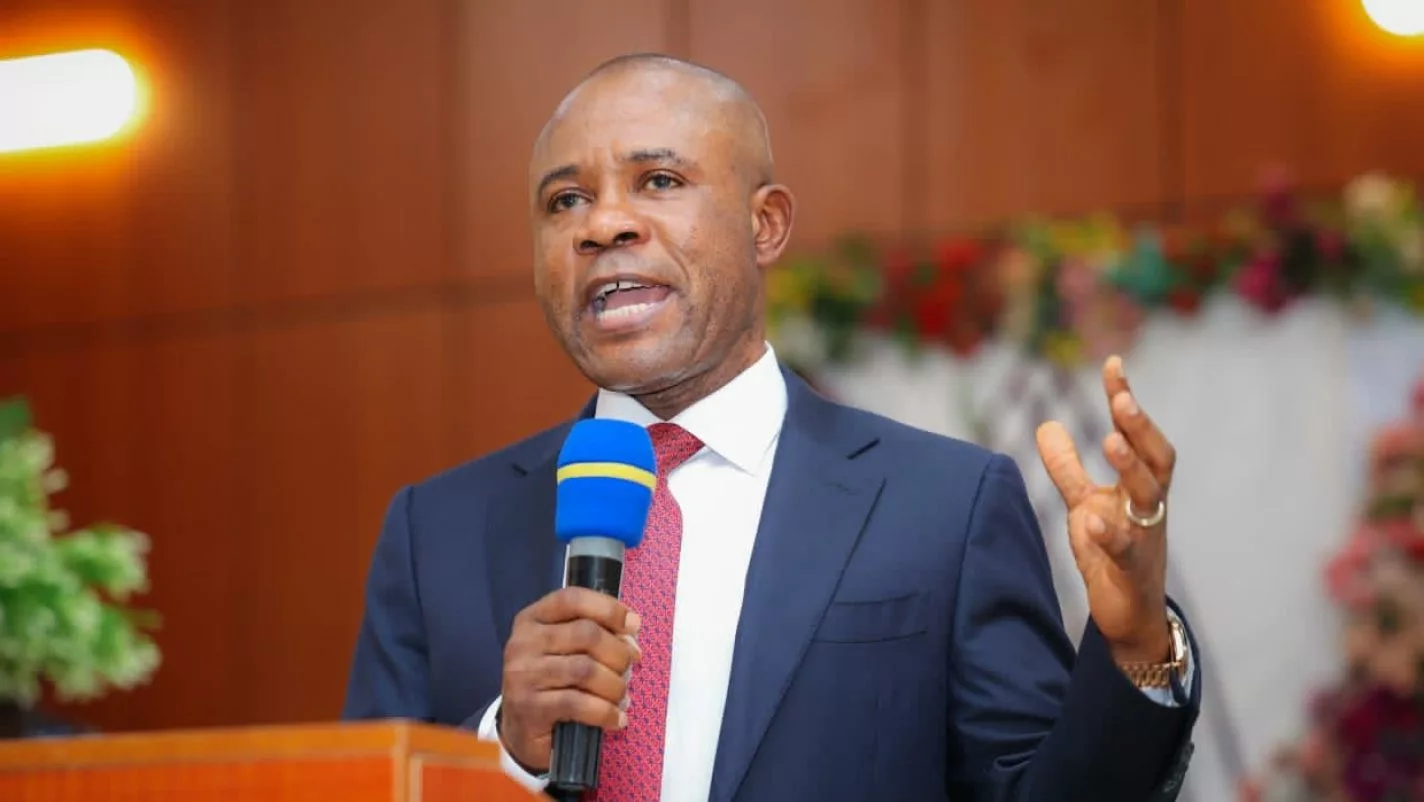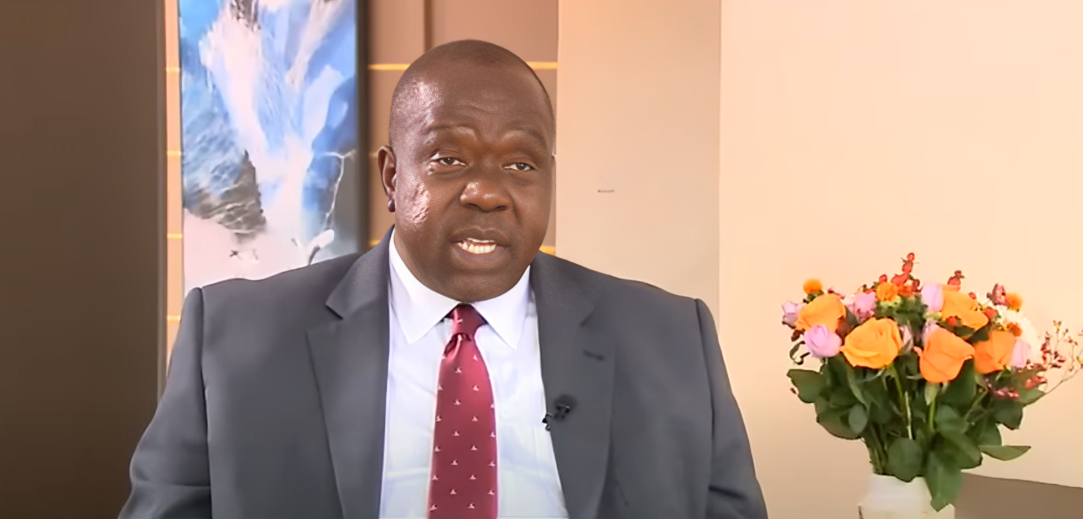Mom Is Scared To Let Her MIL Take Her Toddler To The Zoo
Before getting pregnant, I thought of “letting go” as something far off. And, after having my first child in 2020 and working from home sans childcare, for his first two years of life, it certainly was.
When my mom started caring for my then-two children in 2022, she did so in our home, so I was constantly aware of their whereabouts. She began taking them to her apartment in 2023, and I was grateful for the quiet, knowing I could trust her.
However, getting sick happens, and when she came down with a cold on a workday that I couldn't take off, we enlisted the help of my father-in-law. He wanted to take the boys on a winter beach hike, which required driving them to a local spot and letting them run amok feet from the Atlantic Ocean. My stomach did the wave. But we needed help, and I let it happen.
The outing remains a highlight for my kids and father-in-law almost two years later. The seashells sit on our mantle, and he remains in awe that they made it to a lighthouse on foot. Had I not told my stomach and head to pipe down, that memory would be a mere thought, and the frustration of that day would have only piled onto my chronic child care-related stresses. Instead, he offered a silver lining for all of us.
Still, I empathized when I came across this post from a Reddit Mom, who said she was scared of letting her mother-in-law take her toddler to the zoo.
“It’s not like my MIL is incompetent, but personally, it’s just filling me with anxiety of all the bad what-ifs,” writes u/Abject_Goal_5632 in the Mommit Subreddit. “I instantly told my husband no, but...I’m thinking that my son is losing an opportunity to have some good time with his grandparents. Thoughts?”
Mental experts have a few empathetic ones. For starters?
“It’s completely natural for a parent—especially one of a younger child—to feel anxious about their child being out of sight and out of their control,” says Zishan Khan, MD, a board-certified child, adolescent, and adult psychiatrist with Mindpath Health. “Parenting is deeply tied to a sense of responsibility and protection, so it can be unsettling to imagine someone else, even a loving grandparent, in charge. But distinguishing between protective instinct and anxiety-driven thinking is key.”
First, more context for the mom's decision-making and why she was afraid of letting her MIL take her child to the zoo.
“I don’t want MIL taking my kid out without me,” the original poster (OP) starts. “My husband informed me that my MIL is taking my 2-year-old son to the zoo this Friday when I’m at work. I’m instantly annoyed [because] I wasn’t asked about this plan.”
Sounds reasonable, but experts—and commenters—feel like the concerns Mom lists next fall into a grayer area.
“Mostly, though, I’m uncomfortable with my baby being out at a big public place without me,” she says.
The mom shares that she keeps thinking about all the things that might go wrong, though she concedes her mother-in-law hasn’t acted incompetently in the past. More than 100 commenters chimed in, often with nuanced responses.
“If she is [a] safe person, I think that you should let your kid go,” replies a top commenter.
The keywords are “if” and “safe” here, which is where other commenters who left longer responses focused.
“It would depend on your kid [and] the grandparent,” says one. “My mom takes my son places all the time. He’s 2.5. But she can keep up with him....She’s very aware of car seat safety, and he’s always buckled properly. I never have any concerns because she is in good enough health to handle a toddler in public. My MIL, no. She’s fabulous, and we’re really close. Thankfully, she knows her limits, and she is aware that she’s not in the right health to keep up with a toddler on her own in public.”
This poster also added that her mother-in-law frequently accompanied the family on outings. Another commenter also respectfully challenged OP, echoing what many mental health experts that Parents spoke with pointed out.
“Being anxious is normal...but what is your biggest fear?” the person writes. “Are you worried she won’t be able to handle something, or are you more worried that it’s an experience you’re missing out on? It sounds like a great opportunity for your son to bond with his grandma, but obviously, I don’t know if there are any specific concerns you rightfully have.”
First of all, there are times when a parent’s concerns are more than nerves about letting go, lack of control, or FOMO.
“These include a history of putting the child in unsafe situations or factors that could lead the grandparent to unintentionally risk the grandchild's safety,” explains Emily Guarnotta, PsyD, PMH-C, co-founder of Phoenix Health. “For example, if a grandparent has physical limitations or is suffering from cognitive decline, this could pose risks to the grandchild's well-being. If grandparents and parents have vastly different values when it comes to safety, and grandparents do not respect parents' rules, then this poses a serious problem.”
But Dr. Guarnotta doesn’t see that as the case in this Reddit mother’s concerns about a trip to the zoo with Grandma.
“It does appear that this mother is experiencing some understandable anxiety that may not be based on an immediate, tangible threat,” she says.
“The discomfort seems to stem from the mom not being in control or feeling left out of the plan,” shares Sanam Hafeez, PsyD, a neuropsychologist and director of Comprehend the Mind. “That’s completely understandable, especially for a parent of a toddler, where vigilance is constant and letting go, even temporarily, can feel unnatural. But that doesn’t mean it’s dangerous...It’s a sign she cares deeply, but it doesn’t mean the outing itself is a bad idea.”
However, one person had a slightly different view.
“Her anxiety around her 2-year-old going to a busy place like the zoo for the first time without her is absolutely understandable,” says Abbey Sangmeister, MS.Ed, LPC, ACS, a therapist and founder of Evolving Whole. “To clarify, she is not saying that Grandma is unsafe; the reframe is ‘this specific milestone feels big,’ and wanting to be a part of it or at least consulted first is completely valid.”
That said, she agrees that sometimes it’s important for parents to get curious about the “why” behind the “no.”
“If the child’s safety is in question—a grandparent has cognitive issues, ignores safety rules, or has previously lost track of your child— listen to your gut and hold that line,” Sangmeister says. “But if the concern is more about 'what ifs,' it might be time to explore what’s coming up for them. This allows the parent to honor and decide how to work with their anxiety, not dismiss it.”
In the end, I was happy I didn’t lean into my anxious self when my father-in-law wanted to take my sons to the beach. Doing so would have robbed my kids of a fun outing (and me of the quiet I needed to plow through work-related tasks). But I understand that it’s hard, so I asked experts: What would you say to a parent like me—and this Reddit Mom—with nerves and mixed feelings about solo outings with capable grandparents?
They shared many useful tips.
Feelings happen, whether you ask them to or not. That’s part of being human. But Dr. Hafeez shares that letting anxiety dictate choices can become problematic.
“Practice noticing the feeling—tight chest, racing thoughts, that ‘what if’ loop—and name it,” Dr. Hafeez says.
For instance, Dr. Hafeez says you might start by saying, “This is my anxiety talking.” Then ask yourself, “What would I do if I weren’t anxious?”
“This creates just enough distance for you to choose based on values, not fear,” Dr. Hafeez explains. “Over time, the more you act from that calmer space, the more trust you build in your child’s world—and in yourself.”
Baby steps aren’t just for older infants and toddlers.
“Start by letting your child go on lower-stakes outings with the grandparent—like a short walk to the park or lunch out—before progressing to larger trips like the zoo or going out of town,” Dr. Khan says. “Gradual exposure helps train your brain to tolerate discomfort and see that things can go well. This is based on cognitive behavioral therapy principles, where facing fears in incremental steps helps build confidence and reduce anxiety over time.”
Dr. Guarnotta points out that clear communication about your thoughts, feelings, and experiences can help you claim a sense of control.
“You can share some tips that have worked for you when out with your child, so the grandparent feels prepared,” Dr. Guarnotta says. “Also, focus on other things that are within your control, such as preparing a snack bag and a change of clothes. These acts can help set the outing up for success.”
Experts agree that solo outings with grandparents benefit whole families.
“Grandparents can provide another set of role models and can introduce the child to activities that their parents may not have,” Dr. Guarnotta says. “Grandparents also may pass down cultural traditions and customs and provide another source of healthy attachment and safety for children.”
And, as I have learned, “For parents, it also offers a much-needed break and the chance to see their child loved and cared for by others—something that strengthens the whole family unit,” Dr. Khan says. “Letting go isn’t easy, but it’s part of raising a resilient child—and giving yourself room to breathe as a parent.”
Whether you’re just not there yet or the grandparents’ health or history has raised flags about whether they’re up for a task like taking a child to the zoo, it’s OK to say no.
"Instead of apologizing or over-explaining, speak your boundary clearly,” Sangmeister says. ”You also have the option to offer alternatives so you are still inviting connection, but in a way that feels good for you.”
Sangmeister would suggest telling Grandma, "This is something I’d really like to do with him the first time. I’m not comfortable with the zoo yet, but I’d love for you to take him to something smaller, like story time at the library or a neighborhood walk."










